Old's Gael Garcia Bernal gets philosophical about acting, ageing, and working with M Night Shyamalan
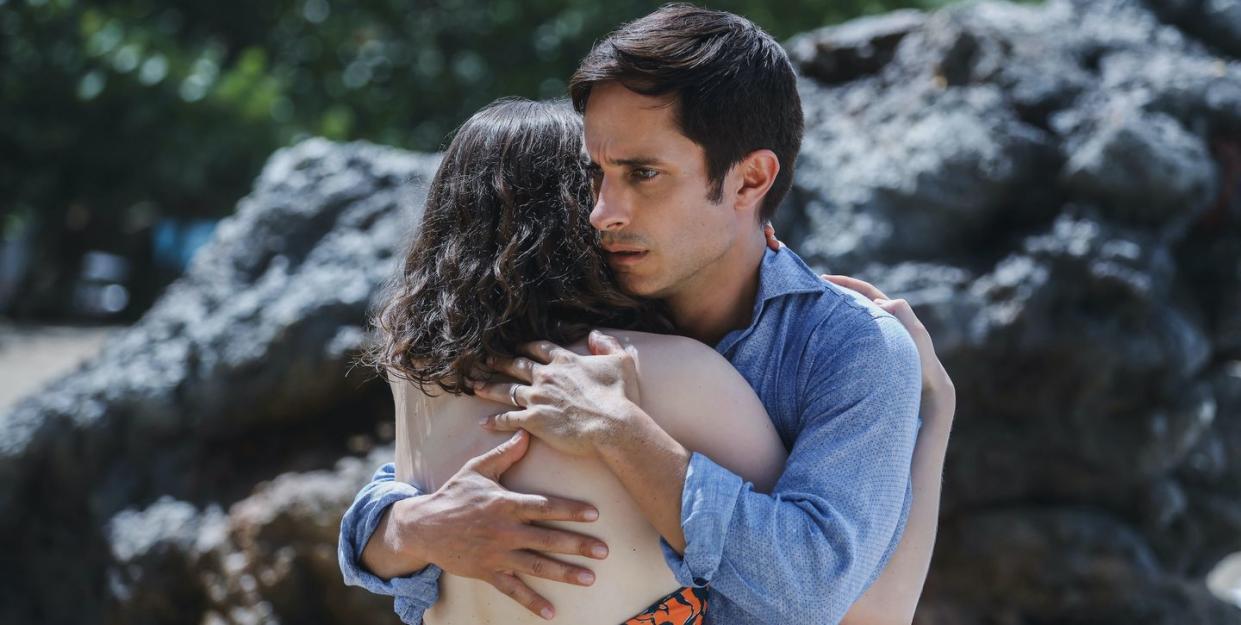
- Oops!Something went wrong.Please try again later.
The concept of M Night Shyamalan's upcoming thriller Old is astutely uncanny. A family goes on vacation to a secluded beach only to discover that they're trapped there, their lives accelerating at a vast speed. A whole lifetime passes in one day.
Familiar, no?
The past year and a half have seen a marked deconstruction of how we process time; months no longer regularly spaced but contracted and elongated by turns like a Slinky, marked by deaths, isolation, fear and sometimes hope. With that in mind, Digital Spy caught up with Old star Gael Garcia Bernal to talk about working with Shyamalan, his storied career, and the bittersweet beauty in watching plants grow.
Did you have any specific experiences that you tapped into to figure out how you would be this person at all these different stages of life?
That was one of the most straightforward questions that we also asked [ourselves]. "How are we going to do this? How are we going to play this? How are we going to manifest this change of time, and what happens?"
All these questions – that's what so nice about making… I don't know. Just going into a place where you can have time to wander around these issues, because we started to ponder, and to kind of go into this kind of philosophical trip, in terms of how to do this.
What does time mean? What's relative? What occurs with your thoughts when you are 20 years older, or 30 years older? What goes on in the way that you experience them, and how you experience time, and how you experience your senses? How do they perceive things?
So we started to play around with that. And with the help of make-up, we had a great opportunity to trust the mask, and to allow us to play out and try out different things.
How did having the visual of all of a sudden being like, "I look a lot older" help you make that jump?
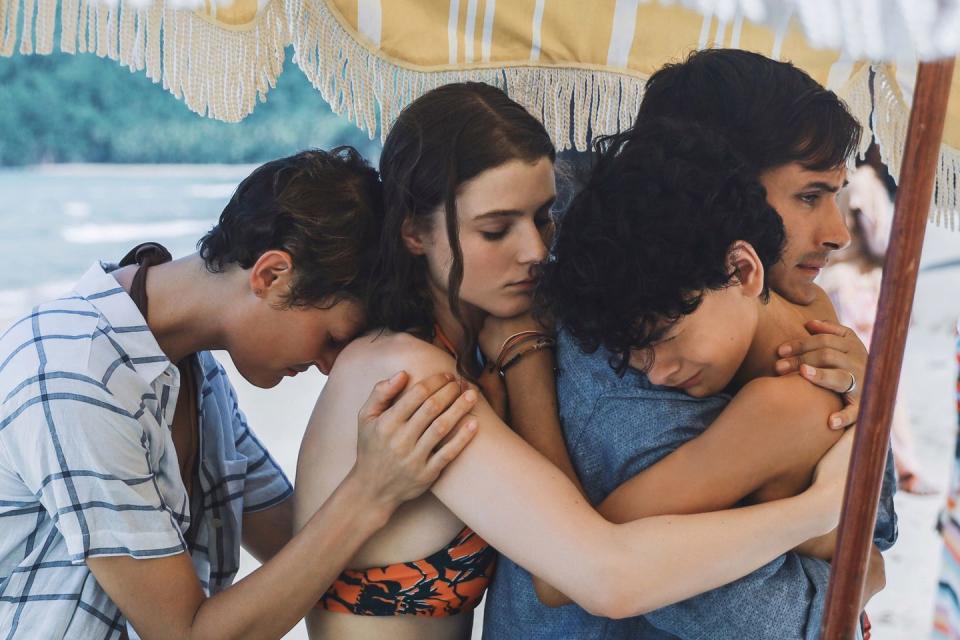
Not only what we felt, but also how people saw us. It is a great… I mean, a wonderful kind of costume or trick, you know?
The last kind of year-and-a-half or two years of lockdown – everyone's concept of how time moves has changed. Was that a lens that you brought to making the movie?
I think undoubtedly all films carry the moment that they were shot. They capture it. I mean, they capture the anxiety that was going on at that point. And naturally, we're there as witnesses, in a way, of it. It's wonderful to see that. It's an incredible document in a way.
When this film was put together, and the idea of making this film, it was at a moment when we were all in complete and absolute shock. I started to hear about this film in May or June of 2020. It was like, "Wow, are films going to still be made? How are we going to make it?"
And also, the idea of making it in the Dominican Republic, you know, and establishing a very protocol-ian bubble, where we couldn't escape, we couldn't leave, you know? But once there, we could take our masks off, and be barefoot for three months. And it was a wonderful experience to do that.
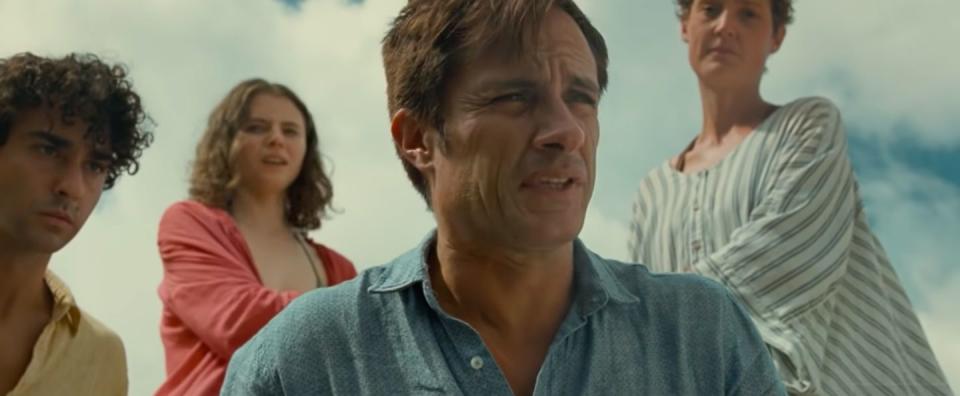
But it's true what you were saying about our perception of time. I remember the first time that we did the PCR test for this film. They asked me my age.
I was like, "Uh… I don't remember." I couldn't remember for a moment, because I'd lost – I don't know. The time of the lockdown hadn't allowed me to kind of experience how old I was, in a way. It was a question of: does it matter how old I am? It was weird to not be able to remember.
And also, one of the biggest experiences I had during the lockdown – and I guess that for many, many, many people in the world, it was the same – but a synthesis of what I experienced was that it was the first time in a long time that I had time to see the plants grow, you know? For good – and at the same time, for bad – in the sense of thinking about how much I miss that.
You've been acting for such a long time, is there something that you are specifically choosy about when it comes to roles?
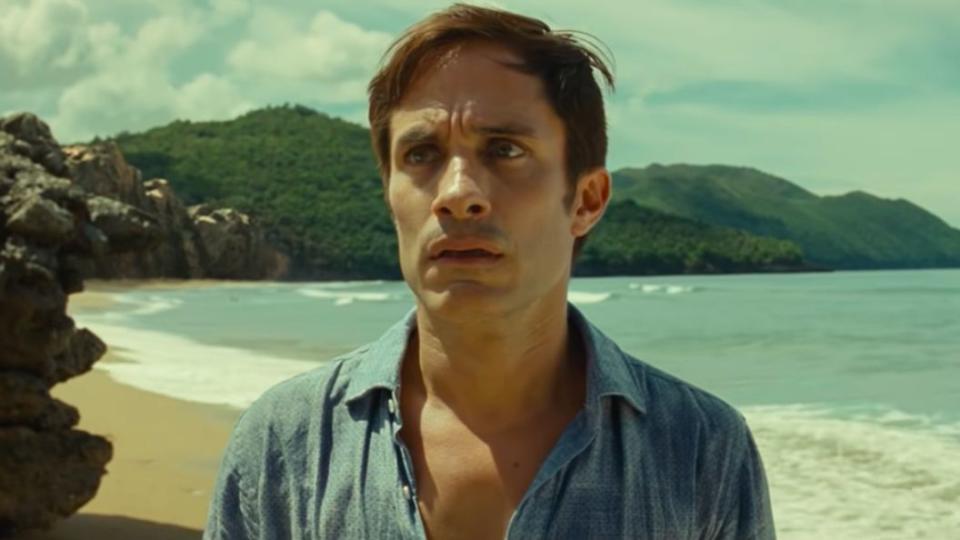
If the idea's fantastic, and the group is fantastic – if everything on paper looks amazing, and the script is incredible and everything – it really depends on the director's kind of interpretation of that, which allows me to go, "OK, I'm going to fall in love with this for a while."
It is a huge risk, but that's what puts me into the mode. And I suppose that there are things that I inherently look for. I was studying philosophy when I was young and was also thinking about sociology. I think there's always a kind of sociological enquiry that I am always looking for when I'm working in films.
There's something there that kind of grabs me, and kind of helps me actually to portray the characters. And I learn a lot. And I experience something different.
Of course, living many lives within one's life is a very poetic experience, and it's wonderful to have that. But at the same time, there is a chance to engage and to be in touch with someone that acting allows you to be on the same level with. Because if one person is playing, the other person plays. And we experience a kind of… we're playing pretend. That's a great place to be close to humanity in a way. Or to you, inside.
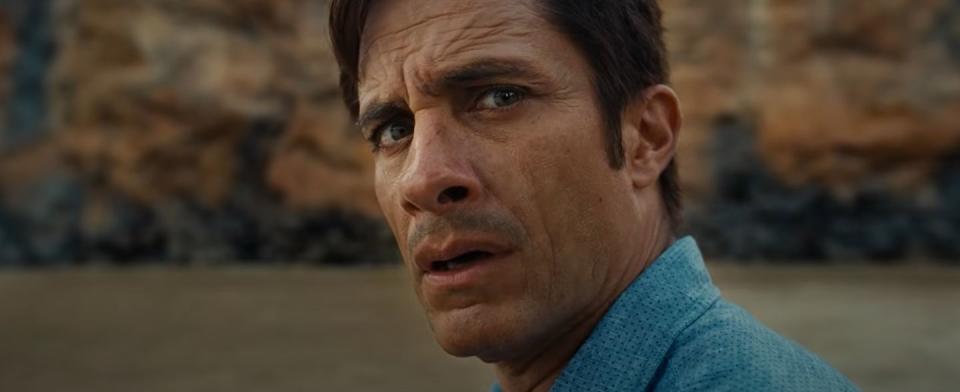
As someone who has had such a varied and long career, how much of who you are, your life experiences, do you bring to each role?
There's no actor that doesn't bring who they are into their characters. I mean, for a character to become alive – what you need is life. And the life is not on paper, you know? It's us, in a way, who put that huge, necessary kind of aspect into it. And life is complex.
We are complex beings, and definitely… you know, that's why casting exists. If not that, then maybe we would become completely the characters that someone imagines. That's animation, you know?
Which you've also done – you voiced in Coco; you've worked in animation.
And even then, there's stuff about me.
Circling back to Old, what was the most difficult thing for you to tap into and what was it like working with M Night Shyamalan through that?
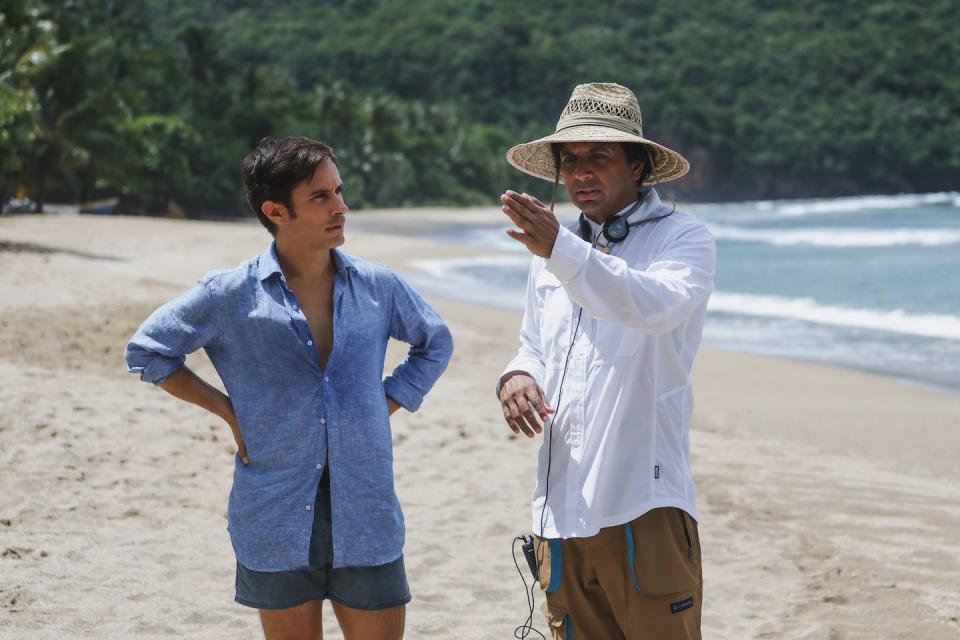
What happens to these characters, that was a challenge. And yes, it had its difficulties. And so the only way was to try them out, and to experiment. "Oh, maybe a little bit more here, maybe a little bit less."
That's where Night was very good at kind of saying, "Wow, that was really good at the beginning."
You're like, "But I want to try out some other things."
[He'll say] "Let's see them. But I think it just works like that," and stuff like that.
Yeah, there was always something. But I guess that was the most difficult, challenging aspect of all this, because the rest was super-fun and easy and comfortable and exciting.
How do you look at your own work once you've left it?
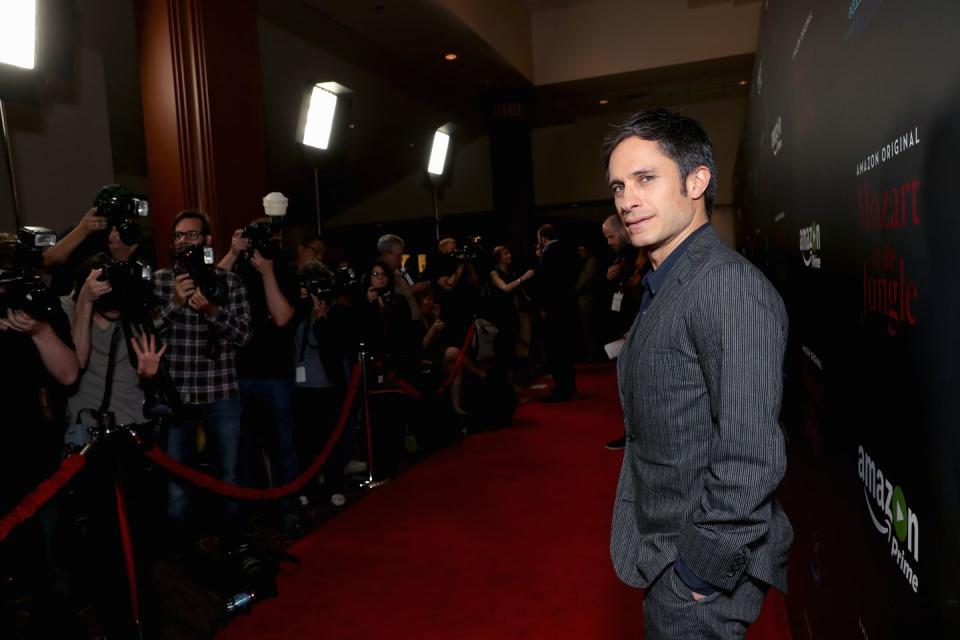
There were some films that I enjoy watching more than others. There were certain films that I would watch over and over again, because I enjoyed watching all the little details and things.
But some films I didn't see many times. It doesn't have to do with if they were good or not or anything. There's something about a different way of engaging or discovering or seeing myself. It's not easy to see yourself on screen. Yeah, there are many things that I hate about what I do, which maybe no-one realises, or some people actually like them and I hate them. But I guess that's what's interesting about one's perception – I feel completely different inside than the way I look, and especially the way I look for someone else.
I accept it. I just let go. You know, I accept it.
Once you've made it, then it's out there for everybody else.
Oh, yeah. The first lesson of making films in a way is that while you're making them, they're still yours. But once you make them, you belong to them.
Old is in cinemas now.
Blockbusters are back – and the latest edition of Digital Spy Magazine has got everything you need to know about the summer's biggest box office arrivals. Read every issue now with a 1-month free trial, only on Apple News+.
Interested in Digital Spy's weekly newsletter? Sign up to get it sent straight to your inbox – and don't forget to join our Watch This Facebook Group for daily TV recommendations and discussions with other readers.
You Might Also Like

